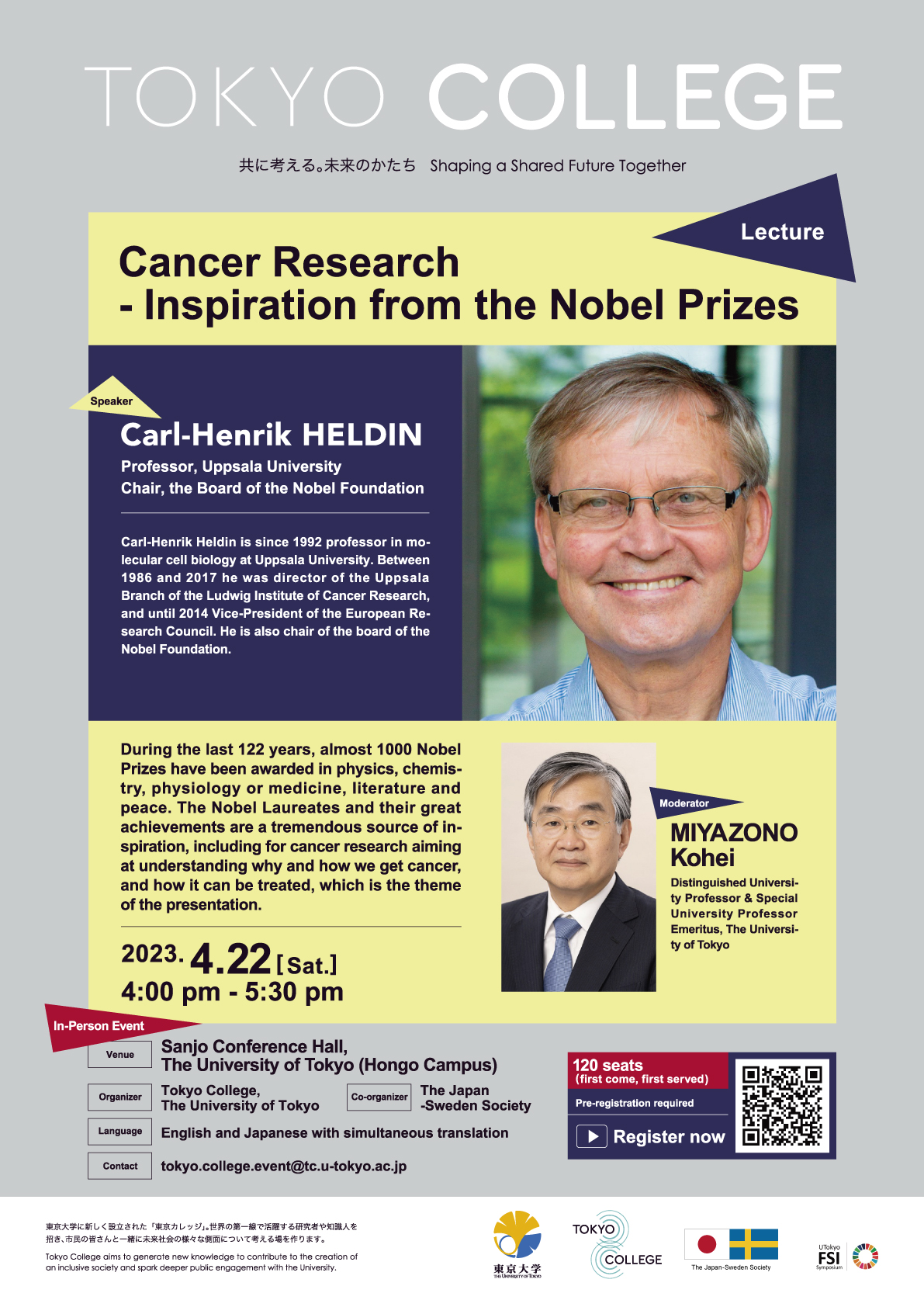Cancer Research – Inspiration from the Nobel Prizes (Lecture by Prof. Carl-Henrik HELDIN)

| Date(s) | Saturday, 22 April 2023, 4:00-5:30 pm (Doors open: 3:30 pm) |
|---|---|
| Venue |
Sanjo Conference Hall, The University of Tokyo (Hongo campus) Register here |
| Registration | Pre-registration required (120 seats, first-come-first-served basis) |
| Language | English and Japanese with simultaneous translation |
| Abstract |
During the last 122 years, almost 1000 Nobel Prizes have been awarded in physics, chemistry, physiology or medicine, literature and peace. The Nobel Laureates and their great achievements are a tremendous source of inspiration, including for cancer research aiming at understanding why and how we get cancer, and how it can be treated, which is the theme of the presentation. |
| Program |
Lecture Q&A Session
Facilitator MINO Takashi (Deputy Director, Tokyo College, The University of Tokyo)
Moderator (Q&A Session) MIYAZONO Kohei (Distinguished University Professor & Special University Professor Emeritus, The University of Tokyo) |
| Speaker Profile |
Carl-Henrik Heldin is since 1992 professor in molecular cell biology at Uppsala University. Between 1986 and 2017 he was director of the Uppsala Branch of the Ludwig Institute of Cancer Research, and until 2014 Vice-President of the European Research Council. He is also chair of the board of the Nobel Foundation. |
| Organized by | Tokyo College, The University of Tokyo |
| Contact | tokyo.college.event@tc.u-tokyo.ac.jp |
| Co-organizer | The Japan-Sweden Society |
















